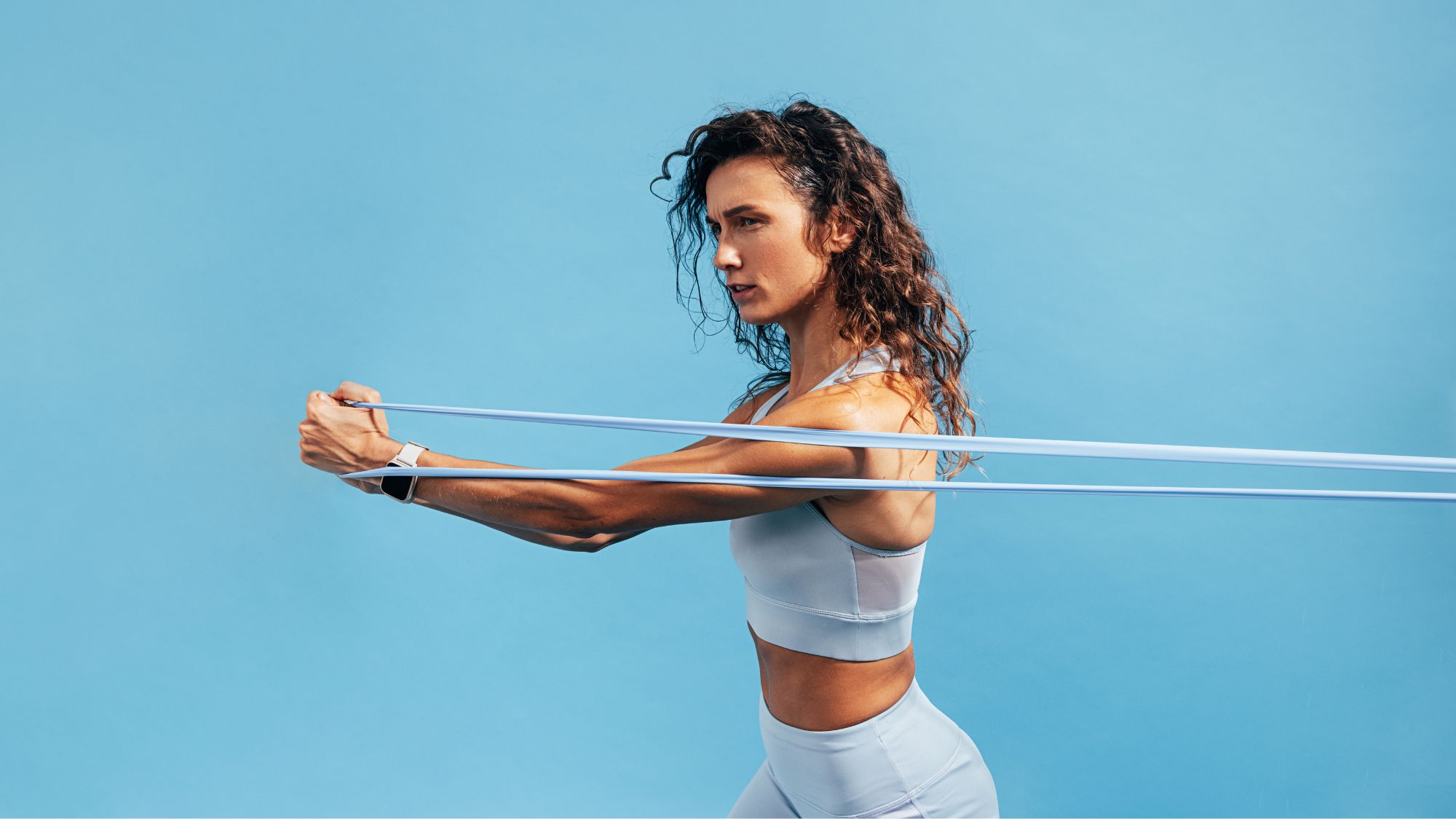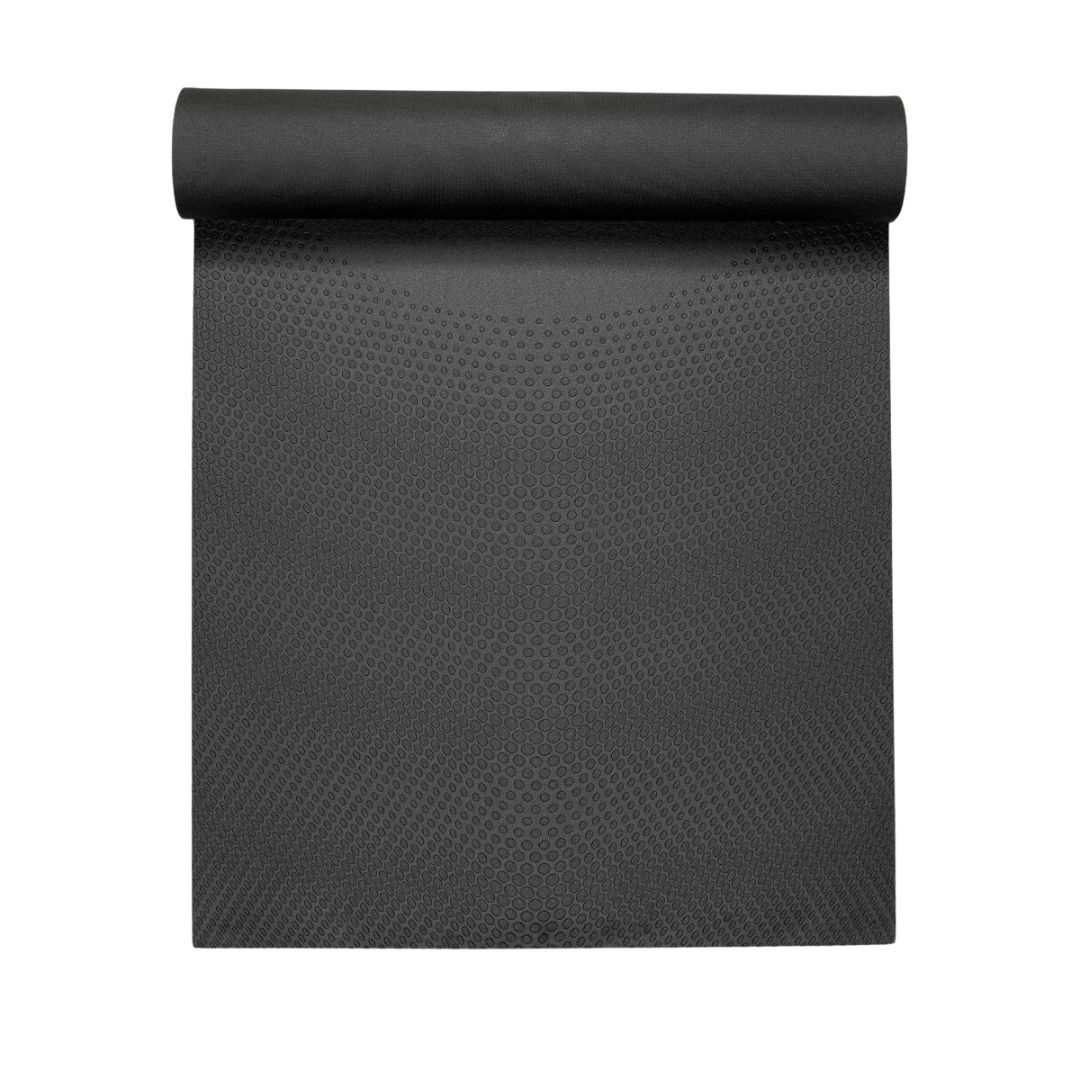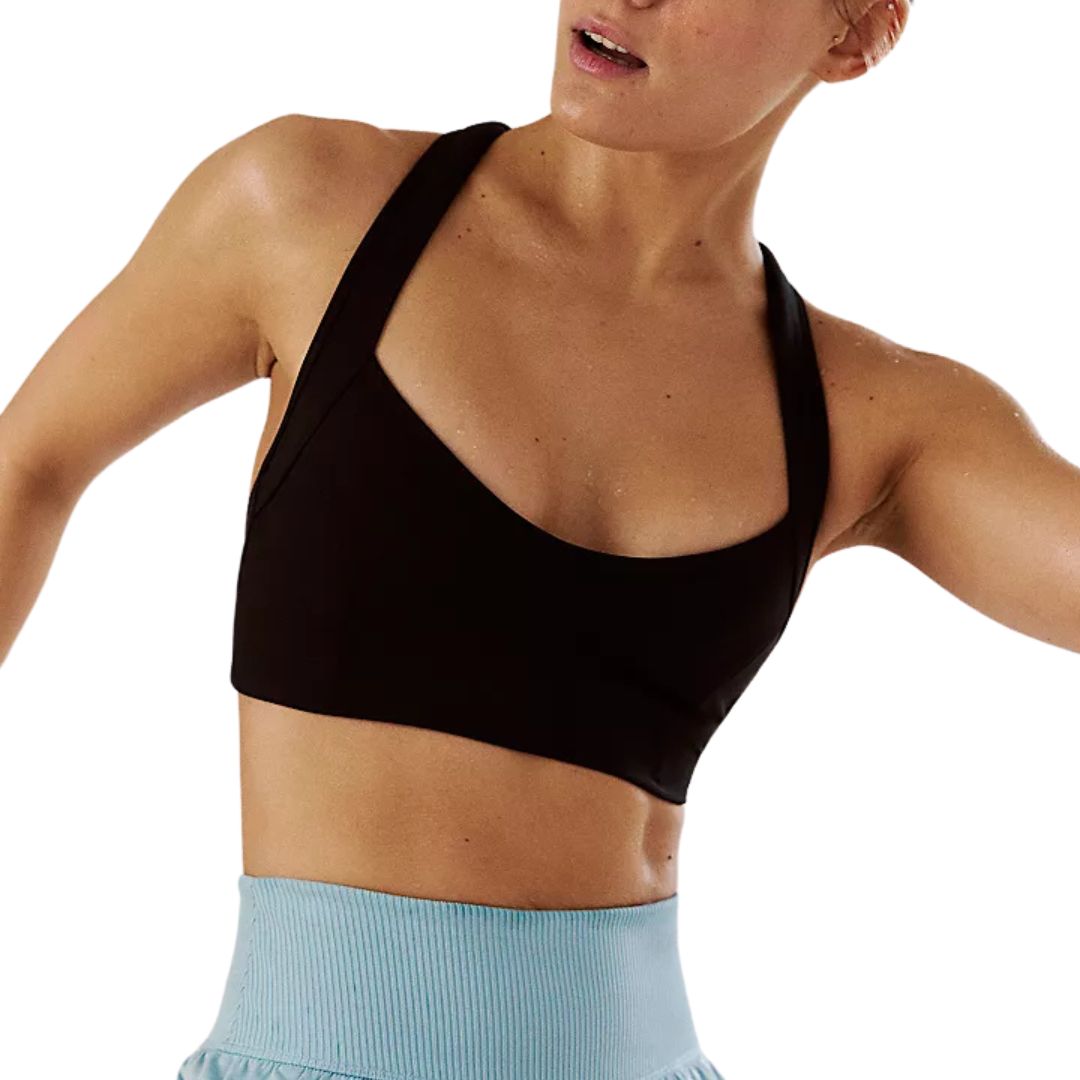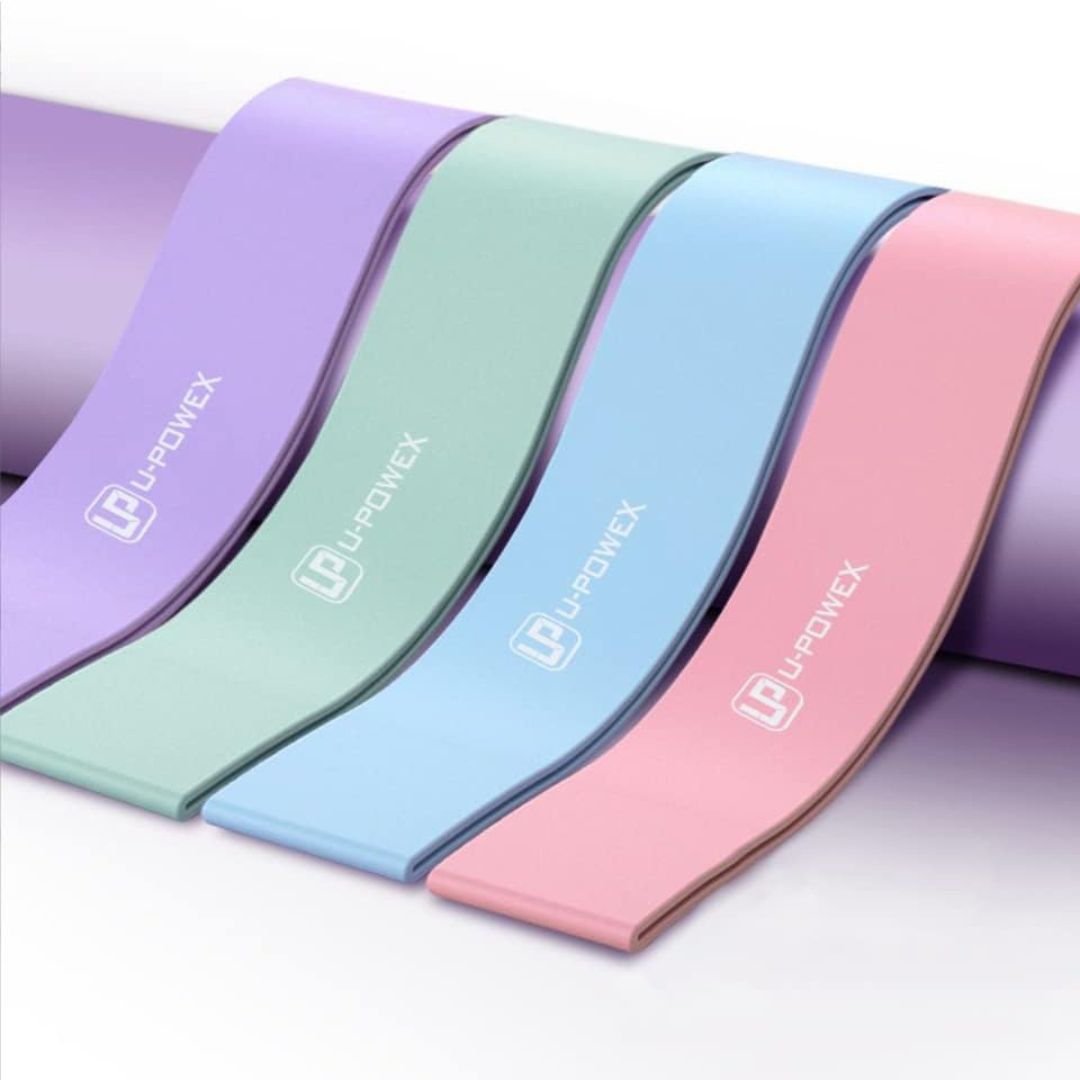New to fitness but want to see quick results? Resistance band core workouts for beginners are the place to start - 7 best
Easy, effective and affordable - don't sleep on resistance band benefits


Celebrity news, beauty, fashion advice, and fascinating features, delivered straight to your inbox!
You are now subscribed
Your newsletter sign-up was successful
If you're a regular MC UK reader, you'll know that we're generally sceptical of social media health and fitness trends, but lately, we've spotted one that we're very here for. Resistance bands are having a moment, and for good reason: they're seriously effective, not to mention affordable, too.
The benefits are science-backed, too. This study (published in the Sage Open Medicine Journal) shows that elastic-based resistance bands gave users the same strength gains as conventional resistance training - basically, study owners reckon they're just as good as weights.
And the trend also taps into our ongoing obsession with low-impact training, as PT and founder of Ladies Who Crunch, Nancy Best, explains. "Resistance bands align to the broader popularity of low impact training, which is really having a moment," she tells MC UK. "Bands offer additional stimulus to bodyweight movements and help you achieve progressive overload safely."
Wondering if they're effective for beginners? If so, we have good news. "Resistance bands are ideally suited to beginners since you can challenge yourself without putting too much impact on your joints," notes Best. Resistance band leg workouts for beginners and resistance band arm workouts for beginners, at the ready.
So far so good - but what's better than one fitness trend? That's right: combining two. In case you missed it, core workouts are also bang on the money right now, with "core workouts" consistently ranking in the top Google searches for health and fitness.
With this in mind, we've put together a definitive guide to resistance band core workouts for beginners for your perusal. Keen to know how to make resistance band workouts effective? Scroll our guide, and don't miss our edit of the best resistance band exercises, plus go-to resistance band leg workouts, resistance band core workouts and resistance band arm workouts for those familiar with the bit of kit.
A PT shares: 7 best resistance band core workouts for beginners
Do resistance bands work your core?
While you might associate resistance bands more with leg or arm strength moves, they're undeniably a powerful weapon in your core workout arsenal.
Celebrity news, beauty, fashion advice, and fascinating features, delivered straight to your inbox!
"Any compound exercise requires the recruitment of core muscles, so you don’t even need to be doing ‘pure abs’ to strengthen this muscle group," advises Best. "For example, a banded hip thrust or a banded press up will be challenging your core stability while also strengthening your hips, glutes and arms as you'd expect."
However, the core-boosting benefits of a band don't end there, as they offer an effective challenge for more targeted abdominal exercises, too, and more.
"Yes, resistance bands they help strengthen your core and ab muscles," agrees personal trainer Emma McCaffrey, "but they also help improve posture, stabilise your spine, increase resistance and make bodyweight exercises more challenging and they provide enough stress to work your muscles harder without the brute strength needed for hand weights or machines."
How to use resistance bands for core strength for beginners
There's no doubt that even for beginners (in fact, we're going out on a limb here and saying especially for beginners) core strength is vital.
A strong mid-section (and by this, we're talking more than your superficial abs, including all the muscles that wrap around and protect your spine) is vital for good balance and stability - something that will really come into its own as your exercise regime progresses, as you'll be able to confidently hold positions for longer without wobbling or falling.
Further, your core is vital for good posture, reducing back pain and risk of injury, and even enhancing athletic performance - so there are loads of reasons to make it your first fitness goal.
And using a resistance band might just be one of the easiest ways to get started. "Since they come in multiple resistance levels, you can track your journey from 'light' to 'extra heavy'," says Best. "You can use a short band around your thighs, your forearms or your feet, depending on the exercise you’re doing. They offer a great introduction to classic core exercises like dead bugs or a side plank, and you can progress to the weightier bands as you get stronger and your endurance improves."
To start with, personal trainer and presenter at Les Mills, Lyndsey Hunter Long recommends moves such as banded bicycles, seated twists, or standing oblique crunches with a band, telling MC UK "the addition of the band adds resistance to traditional ab moves, making them both challenging and effective."
Do note though, that in order for a resistance band workout to be effective, you need to maintain tension on the band - this is what challenges your muscles. For example, if the bands are around your ankles, engage your leg muscles to constantly push against the bands - and that's when you'll feel the work.
Is resistance band training good for beginners?
As we've touched on above, resistance bands can provide a great introduction to strength training for beginners.
"Resistance bands are perfect for beginners," notes Hunter Long. "They offer a controlled, low-impact way to build strength gradually, allowing you to adjust the intensity by using bands with different resistance levels."
McCaffrey specifically recommends banded workouts for beginners for the following reasons:
- They're low-impact: Reducing the risk of joint pain and injury compared to traditional weightlifting.
- They're versatile: They can be used for a wide range of exercises, targeting both upper and lower body muscle groups.
- They provide progressive resistance: Come in sets with varying levels of resistance, allowing you to gradually increase the intensity of your workouts as you get stronger.
- They're affordable: They are generally more affordable than gym memberships or weightlifting equipment.
- They're portable: They are lightweight and easy to store, making them ideal for home workouts or travel.
Can you build muscle with resistance bands?
While you may think that the only way to build muscle is to lift heavy weights, think again: resistance bands can absolutely help you to increase muscle mass and strength.
"Yes, you can build muscle with resistance bands," says Hunter Long. "While they’re often lighter than weights, the bands still create enough resistance to stimulate muscle growth, especially when you use higher-resistance bands and controlled, focused movements."
However, it's important to note here that building muscle is complex, particularly if you're after defined abs - which isn't the be-all and end-all of having a strong core, but undoubtedly motivates some.
"Resistance bands are a great piece of equipment to build strength, but developing muscle mass is more complicated than simply using one piece of equipment," cautions Best. "There isn't a one size fits all approach and it's important to take factors like genetics and nutrition into consideration."
And remember: a key tenet of building strength and muscle is progressive overload. So, if you're finding the workouts becoming easier, take a moment to congratulate yourself on getting stronger - and then up the ante.
"It's worth bearing in mind that to build muscle, you need to progressively overload your muscles," advises McCaffrey, "and you can do this by varying the intensity of the resistance band you use and using higher intensity as and when you're ready."
7 best resistance band core workouts for beginners, chosen by PTs
1. 5-minute resistance band core workout
What? A quick, effective five minute ab and core burner.
Why? Perfect for beginners and those short on time, this workout will put you (and your core) through your paces in double quick time. A great introductory session, it will target your whole midsection, from deep core to glutes, hips and pelvic floor.
How long for? A super speedy five minutes.
2. 10-minute mini band ab workout for beginners
What? A 10-minute mini-band ab workout.
Why? "Starting with a mini-band is a great idea for beginners," says Best. "This gives you clear opportunities to progress as you get stronger and your endurance improves." Plus, it's only 10 minutes, so while you'll definitely feel it, you won't be overloading your muscles too soon.
How long for? 10 minutes.
3. 10-minute Pilates resistance band lower ab workout
What? Another 10-minute band workout, this time for lower abs - what we traditionally think of as a six-pack.
Why? Lower ab workouts tend to involve bringing your legs towards your hips, rather than your head towards your hips, so they're particularly good for people concerned about neck strain.
How long for? Another 10-minute burner.
4. 12-minute resistance band core workout
What? A short but spicy 12 minute ab routine, including classic core moves such as cobra and Russian twists, which McCaffrey advises are excellent starting moves for beginners.
Why? With options for all fitness levels, this workout also focuses on strengthening your back - as mentioned above, technically your core includes all the muscles supporting your spinal column, which help to improve posture and alignment.
How long for? 12 minutes.
5. 15-minute resistance band core workout
What? A slightly longer (but still manageable) 15 minute workout.
Why? This workout will really challenge and enhance coordination and balance. "Many exercises require you to use multiple muscle groups and maintain balance, which can help improve your coordination," says McCaffrey. "This is in addition to activating your core; the bands should provide constant tension throughout the range of motion, which can help to stimulate muscle growth."
How long for? 15 minutes.
6. Lottie Murphy's 15-minute Pilates resistance band core, arms and glutes workout
What? A 15-minute resistance band Pilates workout, targeting arms, glutes and abs, with an MC UK favourite instructor, Lottie Murphy.
Why? When it comes to strengthening your core, Pilates is the GOAT, and this workout includes a range of classical moves from the practice. And don't think you'll be resting your abs when you're working out your glutes and arms - they'll be fired up for the whole session.
How long for? 15 minutes.
7. The Warrior Method's 20-minute resistance band core workout
What? A comprehensive, twenty-minute core workout that's all performed on the floor.
Why? "I designed this workout to be as acessible as possible," says Eliza Flynn, personal trainer and founder of The Warrior Method. "Since it has options to modify it's suitable for everyone, plus, it helps build engagement and strength for the deep core muscles."
How long for? Twenty minutes.
Shop MC UK's essential strength training kit here:
How can I make sure I'm working out safely with a resistance band?
"Before you begin, make sure you've taken the following steps," advises McCaffrey. "Firstly, start with a lighter resistance band and increase the resistance as you get stronger. Next, maintain proper form to avoid injury and maximize results. Remember to engage your core muscles throughout each exercise, breathe deeply and maintain a steady pace."
They go on: "You may also want to consider working with a qualified personal trainer to learn proper form and technique, before going it alone." Got it?

Anna Bartter is a freelance journalist who writes about health, fitness and women's lifestyle for publications including Stylist, Metro and Psychologies, among others.
She's always on a quest to find a variety of fun and functional workouts that give you the most bang for your workout buck and she's passionate about championing movement for everyone's mental and physical wellbeing.









